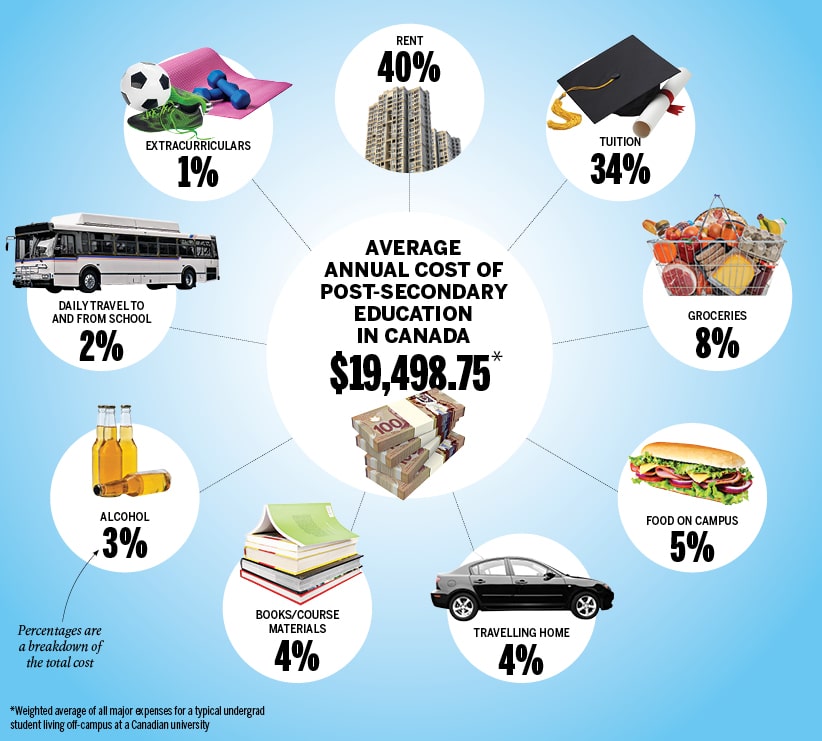Weekend Reading: CPP Reality Check Edition
Repeat after me: The Canada Pension Plan will be there for me when I retire. In fact, CPP is sustainable over the next 75 years according to the most recent report issued by Canada’s Chief Actuary. This projection assumes a modest 3.9 percent annual real rate of return over that time.
The plan is operated at arms length from governments by the CPP Investment Board, whose sole mandate is to maximize long-term investment returns in the best interests of CPP contributors and beneficiaries.
Despite this assurance, I still see numerous comments on blogs and social media dismissing CPP as something doomed to fail.
“The feds are robbing the CPP fund to pay for infrastructure and massive debt loads.”
“I’m fairly certain there won’t be a CPP fund in 25 years when I’m ready to retire.”
“My retirement projections don’t include CPP, just in case . . . “
The media exacerbates the problem by reporting on the CPPIB’s quarterly earnings, which, most recently, slumped to 0.7 percent thanks to a strong loonie dragging down its foreign investments. But to the CPPIB and its long-term investing mandate, a quarter isn’t measured in three months – it’s more like 25 years.

It’s a mistake to ignore CPP benefits in your retirement planning projections. While it won’t save your retirement, CPP is paying out on average $653 per month for new beneficiaries as of July, 2017. The maximum monthly payment amount is $1,114.17.
Think of CPP as a retirement supplement providing you with an additional $7,800 or more each year. That’s money you won’t have to withdraw from your personal savings, and a source of income that won’t be (as) exposed to the ravages of inflation or longevity risk.
This Week’s Recap:
On Monday I listed eight steps to help create your own financial plan.
On Wednesday Marie shared four end of life strategies your survivors will thank you for.
And on Friday Marie continued her ‘building your wealth’ series with a look at investing in stocks.
Over on Rewards Cards Canada the big news this week was PC Plus and Shoppers Optimum merging to form the new PC Optimum loyalty program.
Weekend Reading:
Scott Terrio on how Canadians could walk away from their homes if house prices fall.
Rob Carrick blames low interest rates for turning us into a nation of money ‘klutzes’.
Billionaire investor Ron Baron with the most sensible advice I’ve ever heard about how to get rich:
“You have to have a small amount of money and invest it regularly for a long time, and live to get to be old. That’s how you get rich.”
Then there’s pretend billionaire Wilbur Ross and the mysterious case of his missing $2 billion.
The C.D. Howe Institute says Canadians should be able to contribute more to their RRSPs. Why it’s time to rethink the ‘outdated, unfair’ RRSP contribution limit.
Speaking of reform, Mawer Investments says it’s time for oil companies to stop distributing quarterly dividends, and energy investors need to break their addiction to those payouts.
Steadyhand’s Tom Bradley shares the two most common behavioural biases that impact investor outcomes.
While on the topic of ‘herding bias’ Million Dollar Journey explains what Bitcoin is and how to trade cryptocurrencies.
Age-based savings targets can leave many people feeling anxious about how much they need to put away for retirement. Des Odjick rightly explains that you don’t need to save that much when your investments do the heavy-lifting for you.
Maclean’s highlights the cost of a Canadian university education with some cool graphics, including this chart:
Vancouver’s new empty home tax will be charged on any homes left empty or occupied for less than six months per year.
A Canadian scalper’s multimillion-dollar StubHub scheme – targeting high-grossing acts like Adele, Drake and Ed Sheeran – was exposed in the Paradise Papers documents.
28-year-old Ryan Grant made millions buying items at WalMart, Toys R Us, and Target, and then reselling them on Amazon.
Fred Vettese on why few Canadians are destined to hit their retirement income ‘sweet spot’:
“About a third of future retirees will be underachievers in terms of retirement income while another third will be overachievers.”
MoneySense’s Prajakta Dhopade with 10 retirement questions, answered.
This woman’s husband transferred his workplace pension to a high-fee LIRA and is looking for a smarter solution. CFP Jason Heath weighs-in on LIRA regrets.
Face it, the sun has set on the golden days. Jonathan Chevreau on how to survive the ‘new’ retirement.
Gordon Pape explains what you need to know if you’re contemplating a trip south this winter.
Finally, if you’re looking to add to your financial reading list I highly recommend this piece by Morgan Housel on what he reads (and why).
Have a great weekend, everyone!



It was refreshing to read that the CPP is on good legs for the next 75 years at least. And, the conservative rate of return used in their assessment is a good sign as well that the CPP is going to be around for a while.
The ink to a cryptocurrency article explained it quite well in simple terms. I would never go into such risky assets which reminds me of the dot com hey days. Still is interesting to understand.
I know it is fee free to send and convert real currencies but I have used Norbert’s gambit to convert Can$ to US$ virtually fee free.
Thanks for a great weekend roundup as always